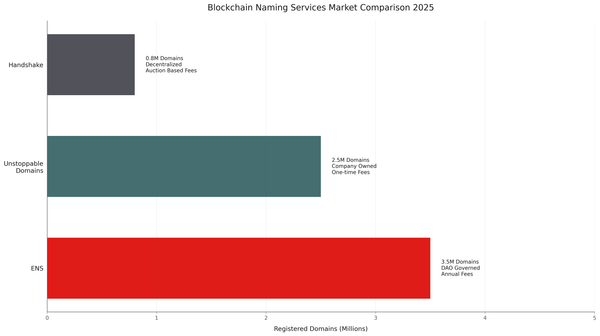An interview with a DAO money grabber, how they are draining treasuries

DAOs have garnered significant attention and investment within the realm of cryptocurrency, with several managing billions in their respective treasuries.
However, not all participants in DAOs possess noble intentions. Certain contributors seek to manipulate the system, siphoning funds from treasuries without providing any corresponding value.
These actors are called money grabbers, they use various tactics and strategies to deceive and manipulate other members, administrators, and delegates of the DAO.
They often create proposals that sound appealing but are vague, unrealistic, or overpriced. They also try to build a reputation and network within the DAO to gain trust and influence. They may even collude with other scammers or bribe delegates, SM managers or administrators to get their proposals approved.
After we published an article on the dark side of DAOs, an anonymous person contacted us, claiming to be part of a group of money grabbers. He agreed to answer some of our questions and explain how they operate.
Can you tell us a bit about yourself and how you got into DAOs?
Sure. I’m a marketer with some experience in crypto and DeFi. I got into DAOs about a year ago when I saw how much money they were raising and managing. Also was interested to try this system.
And when did you decide to become a scammer contributor?
Well, I wouldn’t call myself a scammer per se. I prefer to think of myself as an opportunist or a pragmatist. I realized that there was a lot of inefficiency and waste in the DAO space. A lot of proposals were poorly written, poorly executed, or poorly evaluated. A lot of funds were sitting idle or underutilized in the treasuries. A lot of members were naive or ignorant about what was going on... I saw an opportunity to make some money by exploiting these gaps and weaknesses.
Can you give us some examples of how such money grabbers are operating?
It's like the stuff guys do to promote ICOs, IEOs, NFT drops, and other rug pulls. Some of them just deliver the result in order to just formally declare that the work is done. For example, if you make a tool that gives utility to your DAO token, to make it work well you need to put a lot of effort into promotion and refinement. But why? When you can technically show results and walk away without being accused of being a crook.
So they basically create low-quality content or tools that don’t add any value to DAOs?
Yeah, pretty much. But they make sure they look good enough on the surface so that people don’t question them too much.
But there's a catch - if you wanna take funds regularly, you gotta show results that you can present as quality, and in the case of creating any form of content or tools it means spending some serious potion of cash from grants… So these options don't work for us. Our main goal is to get regular funds from treasuries and keep the flow of funds increasing, without losing our rep. It's like playing politics but without much responsibility. And it's def more rewarding compared to the efforts spent.
Can you explain your strategy for infiltrating DAOs and extracting funds from their treasuries?
Sure, first, we gotta get into a DAO and participate in discussions on all platforms. Users gotta believe we're the good guys. So we have to invest time and resources to build trust. We are networking with admins, social media managers, delegates, and other contributors.
Next, we brainstorm ideas of proposals that meet certain criteria: low effort, easy-to-hire cheap freelancers, and no clear metrics for evaluating our productivity.
This is why admin or managerial roles are perfect for us. We are securing a regular "salary," can fake our activities, and don't have to report on specific metrics. And we gain power in DAOs, which helps us push more of our proposals. It's like a snowball of influence.
We don't stop there, tho. We dig into the DAO's governance model and figure out how they make decisions. We learn the voting process, quorum stuff, delegation things, and the incentives for voters... We are looking for any loopholes or weak spots we can exploit. This is actually a hard job.
What kind of vulnerabilities do you look for?
Well, there are many. For example, some DAOs have low participation rates or low quorum thresholds, which means that we can easily sway the vote with a few supporters or bribes.
Some DAOs have weak identity verification or anti-sybil measures, which means that we can create multiple accounts to influence voters and audiences. Some DAOs are strongly dependent on administrators, and it's very easy to bribe them in one or another way. We also try to use our reputation and network with DAO members to get endorsements from members or delegates. We sometimes offer them a cut of our profits or some other benefits in exchange for their support. For example, we can offer them a highlight in Twitter spaces or endorse their proposals if they will publically vouch for us.
Have you encountered any challenges while implementing this strategy?
Oh, for sure. There were a few times our proposals fell through cause we got too greedy, but you live and learn, right? And we got better over time. We also came up with a trick to take over promising proposals. We monitor new proposals with potential, refine them, and then publish our own version in the same DAO. We ask the admins to stall the original proposal so ours gets voted on first. We also can initiate a bit of toxicity in their discussions so that their proposal would look cringe... But in general, we are looking for management positions and "educational" crap.
People are happy to be governed and guided, even in DAOs, so we are giving them what they want and deserve.
In one DAO, we even got some of our peeps into admin roles using fake passports for KYC. And we are actually on our way to controlling at least one nice treasury.
So you can influence admins and even promote your members to such roles. Can you elaborate on onboarding social media managers?
Oh, for sure. Getting SM managers of DAOs on our side helps a lot. If they do what we tell them, everything's way easier. We even pay a salary for one dude to constantly tweet about our activities in a positive way, and to straight-up ignore other similar requests. This strategy also helps us big time with elections.
How much money have you made from scamming DAOs?
I can’t give you an exact number, but we've been at it for over a year, and that it’s over a million. The money started slow, but it's been picking up. Our goal is to control one or two treasuries and transfer funds to our wallets bit by bit. The best scenario would be if members actually thank us for it and we would be able additionally monetize them as our audience.
Do you feel any remorse or guilt for scamming DAOs?
I’m just taking advantage of the system and the market. I’m not hurting anyone or stealing anything. Again, don’t call me a scammer. We play the governance game with them and they owe us for it.
Do you think DAOs can prevent or stop contributors like you?
I don’t think so. DAOs are inherently vulnerable and flawed because they rely on human trust. But humans are greedy, selfish, irrational, and emotional. They can be easily manipulated.
This story shows the challenges that DAOs face in ensuring their security and integrity. While DAOs offer many advantages and opportunities for innovation and collaboration, they also pose many risks and threats for manipulation and deception.
As DAOs become more popular and powerful, they will need to find ways to prevent or stop scammer contributors like him from draining their treasuries. Otherwise, they may end up losing their trust, reputation, and value, which is happening right now.





